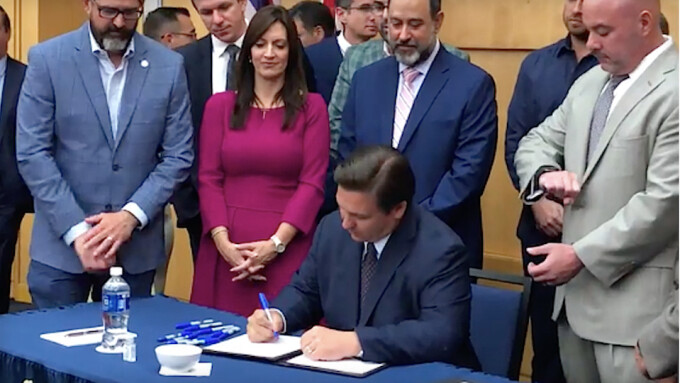TALLAHASSEE, Fla. — A Florida court enjoined last week the implementation of Florida’s controversial new law making social media platforms liable for moderation policies, in the name of political — but not sexual — "free speech."
U.S. District Court Judge Robert L. Hinkle (Northern District of Florida) ruled that “the implementation authorities must take no steps to enforce Florida Statutes §§ 106.072 or 501.2041 until otherwise ordered.”
The text of Hinkle’s Preliminary Injunction from June 30 sharply rebukes Republican Governor Ron DeSantis for his public statements about the law, noting with derision the law’s bizarre, Disney-tailored exemption for owners of platforms that also own theme parks.
“The State of Florida has adopted legislation that imposes sweeping requirements on some but not all social-media providers,” Hinkle ruled. “The legislation applies only to large providers, not otherwise-identical but smaller providers, and explicitly exempts providers under common ownership with any large Florida theme park.”
“The legislation compels providers to host speech that violates their standards — speech they otherwise would not host — and forbids providers from speaking as they otherwise would,” Hinkle continued. “The Governor’s signing statement and numerous remarks of legislators show rather clearly that the legislation is viewpoint-based. And parts contravene a federal statute. This order preliminarily enjoins enforcement of the parts of the legislation that are preempted or violate the First Amendment.”
As XBIZ reported, DeSantis held a ceremony on May 24 to sign into law new state bill SB7072, which criminalized, in the name of free speech, some of the moderation practices of social media platforms.
However, language concerning sexual expression carved out an exception that allowed the restriction of anything that might be considered “obscene” by the platforms, as defined by Florida statutes.
Adult Industry Concerns About First Amendment Issues
Adult industry attorney and First Amendment expert Lawrence Walters from the Walters Law Group, who represented Amicus Tech Freedom in the case, told XBIZ that “the decision is significant as it could have required the larger adult platforms to dramatically change the way that content is displayed to Florida-based users.”
In light of the injunction, Walters continued, “platforms will not have to worry about revamping their systems to comply with these burdensome requirements.”
However, Walters added, “the industry should closely monitor any appeal of this decision to the Circuit Court... this ruling represents the first major attempt by a state to regulate the content of social media sites.”
“The court correctly ruled that the statute was an unconstitutional content-based restriction on speech and largely preempted by federal law (i.e., Section 230)," Walters told XBIZ. “If this decision had turned out differently, we could have seen 50 states passing different rules on how social media platforms must display content to users based on their location or ‘domicile.’ That is completely unworkable and impractical.”
Walters said he hopes the decision “will deter other states from legislating in a field that is exclusively the province of federal law, and will educate lawmakers on basic First Amendment freedoms.”
Main Image: Florida Governor Ron DeSantis (R) signing the "Free Speech" law on May 24







